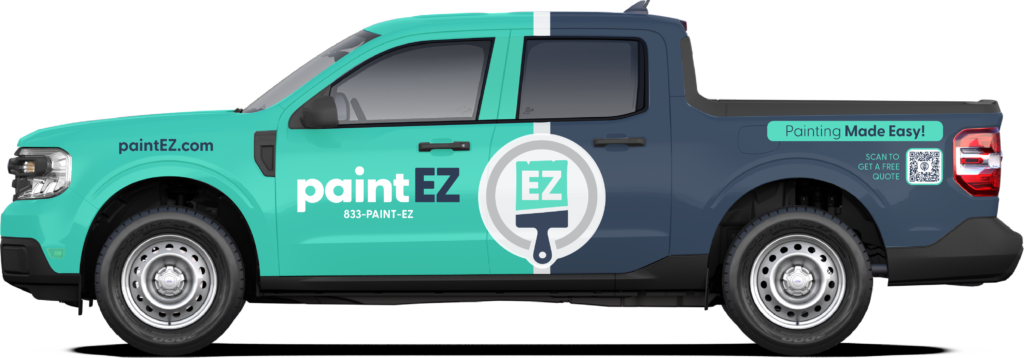Garage Floor Coatings
Upgrade your garage with a flooring system that's built to last. At Paint EZ, we install epoxy and polyaspartic garage floor coatings designed for superior durability, easy cleaning, and long-term protection against stains, cracks, and wear.
Whether you use your garage as a workspace, storage area, or showroom, our coatings transform dull concrete into a clean, professional, polished surface that withstands everyday use and extreme conditions.
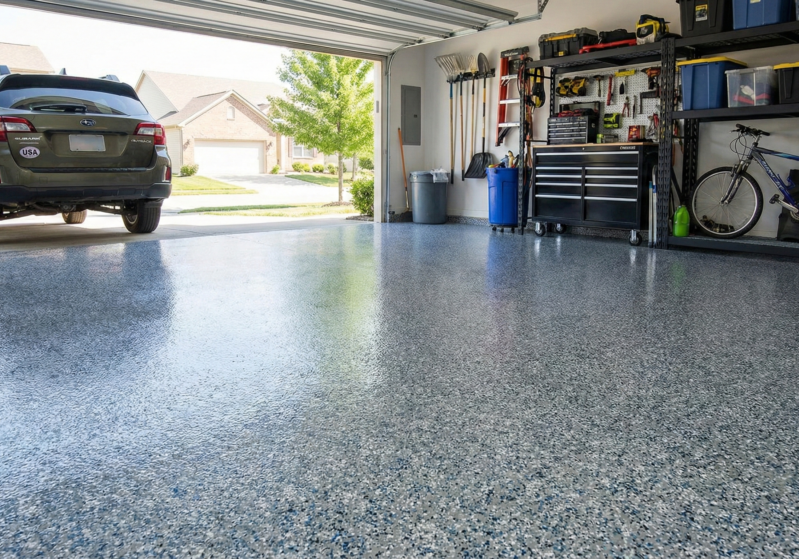
Why Upgrade to a Professional Garage Floor Coating?
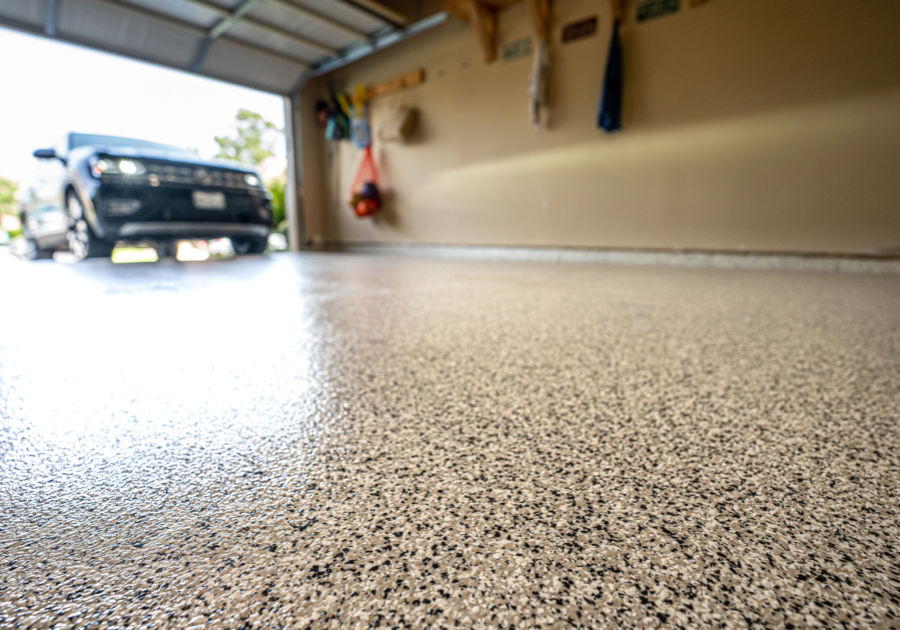
Your garage floor takes more abuse than any other surface in your home. Between car fluids, heavy equipment, and foot traffic, raw concrete quickly deteriorates, causing chips, cracks, and dusting.
Paint EZ’s epoxy and polyaspartic coating systems:
- Prevent moisture and oil penetration
- Create a non-slip, easy-clean surface
- Resist impact, tire marks, and chemicals
- Boost your home’s value and curb appeal
Perfect for: Garages, basements, workshops, laundry rooms, and showrooms.
Epoxy vs. Polyaspartic Coatings: What’s the Difference?

Epoxy coatings are a proven, cost-effective way to seal and protect concrete, ideal for residential garages and interior spaces.
Polyaspartic coatings, the next generation of flooring technology, cure faster and provide superior UV protection, making them ideal for {{City}} homeowners seeking year-round performance, even in fluctuating climates.
Our 4-Step Installation Process
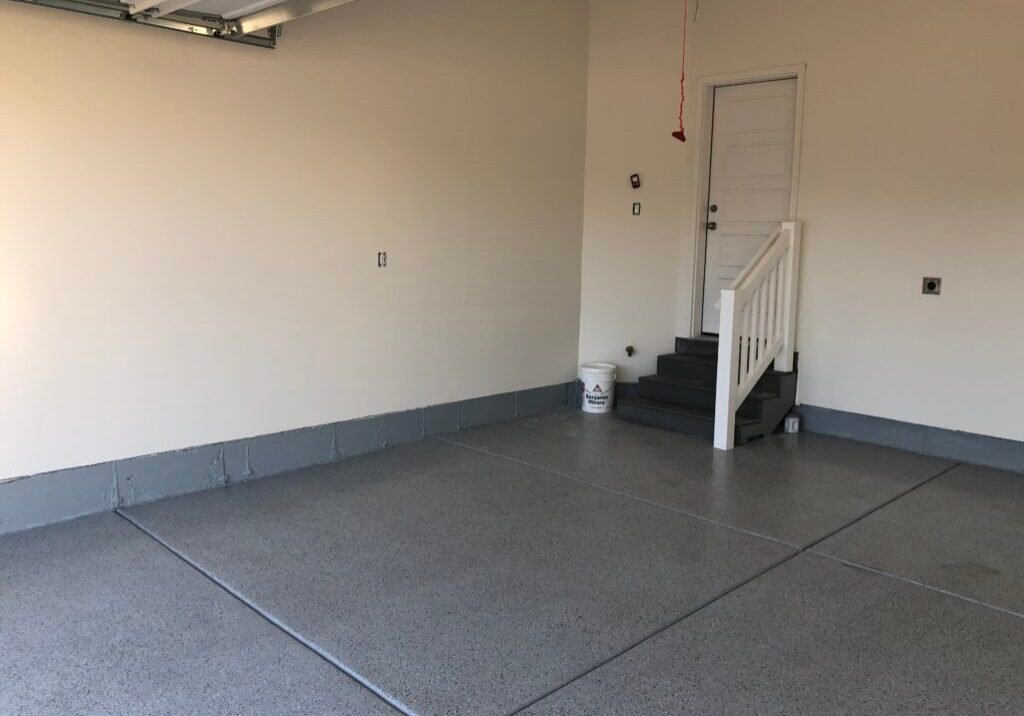
Step 1: Preparation & Repair
We clean, grind, and etch the concrete surface to remove dirt, sealers, and contaminants, ensuring maximum adhesion.
Step 2: Crack & Joint Filling
All cracks and imperfections are repaired to create a smooth, level base.
Step 3: Base Coat Application
We apply a professional-grade epoxy or polyaspartic base coat customized to your needs.
Step 4: Decorative Finish & Topcoat
Choose from solid colors, decorative flakes, quartz blends, or metallic finishes sealed with a UV- and chemical-resistant topcoat.
Why Homeowners Choose Paint EZ for Garage Floor Coatings
- Certified epoxy and polyaspartic installers
- Dust-free surface prep with industrial grinders
- Custom design & color options
- Fast turnaround (ready in 24 hours)
- Backed by our Good, Better, Best Warranty Program
Protect your concrete. Elevate your space with {{City}}’s local coating experts.
What We Do
Other House Painting Services We Provide
From interior painting to exterior painting and everything in between, we got you covered!

Exterior Painting
Revitalize your home's curb appeal and boost your home's value with our professional exterior painting services.

Interior Painting
Reimagine your interior with our expert painting services - from vibrant colors to calming tones, get a free quote for your dream space today.

Cabinet Painting
Refresh your kitchen or bathroom with our expert cabinet painting & refinishing - get a free quote to transform your space today!
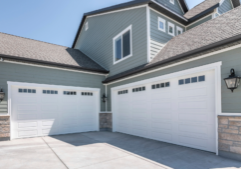
Garage Door Painting
Modernize your home's style and upgrade your home's curb appeal with garage door painting services.
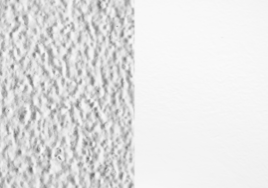
Popcorn Ceiling Removal
Brighten up your space, improve air quality, and modernize your style with popcorn ceiling removal services from Paint EZ.

Commercial Painting
Elevate your office or local business and improve the value of your brand with a fresh coat of paint.
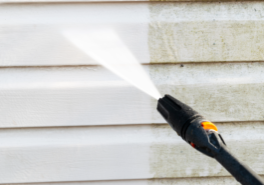
Pressure Washing
Whether prepping for paint or just giving your home a quick refresh, we can help with pressure washing.
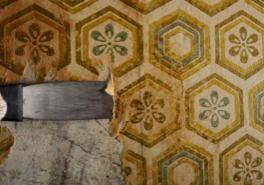
Wallpaper Removal
Avoid the DIY stress and let us remove that dated wallpaper and modernize your home's style.
Detailed Estimate + Color Consultations + Quality Craftmanship
Less Stress. Better Painting.
Our expert staff will answer all of your painting questions, provide a detailed quote, help you select the best color for your space, and most importantly provide high-quality craftsmanship.
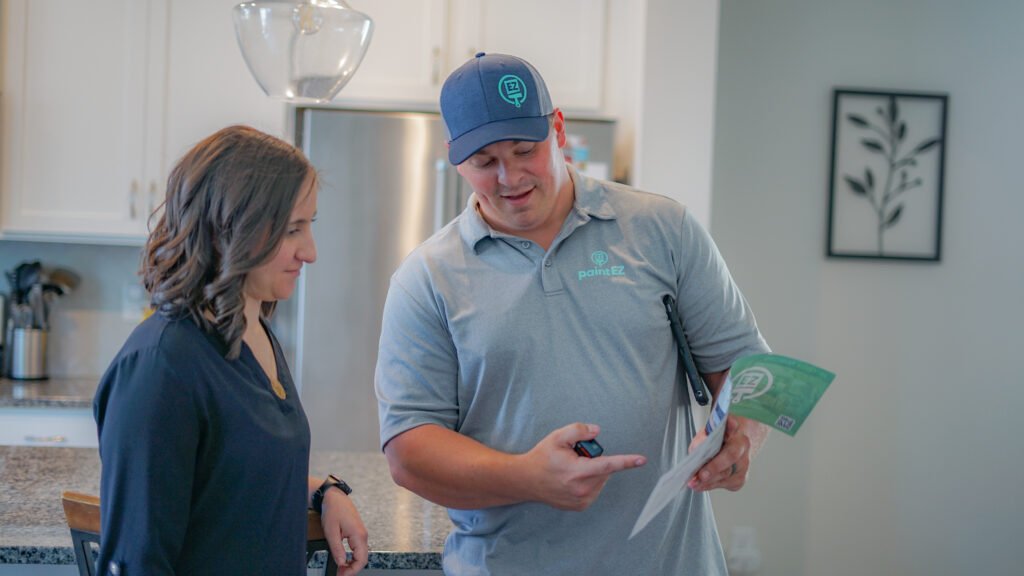
Select the Perfect Color
Too many colors to choose from?
Choosing the right paint colors can be very overwhelming. Our team can help! Schedule a free color consultation to make sure you get the perfect color for your space. Our color visualization tool allows you to try on as many colors as you would like so you can see what looks best before you decide.
Safety & Security
Best Extended Warranty Options
Our warranty options are the best in the business. With 2, 5, & 7-year options, we can help keep your home looking great for years to come.
Standard Warranty
2-Year workmanship warranty
"Good" quality products
5-Year Warranty
5-Year workmanship warranty
"Better" quality products
One-hour touchups every year
7-Year Warranty
7-Year workmanship warranty
"Best" quality products
One-hour touchups every year
Priority scheduling
Giving Back
Giving Back: Rooms for Hope
Our service initiative, Rooms For Hope, is committed to supporting patients and families of those impacted by cancer or terminal illness. Every month, our franchisees transform living spaces into comfortable places that nurture hope and healing, and work with other allies within the community to provide uplifting support for those traversing through the life-changing journey of cancer or terminal illness. Learn more about what we’re doing to change lives at: roomsforhope.com
Tips & Inspiration
Advice from our Experts
Check out our blog for color advice and maintenance tips.
FAQ
Any questions?
